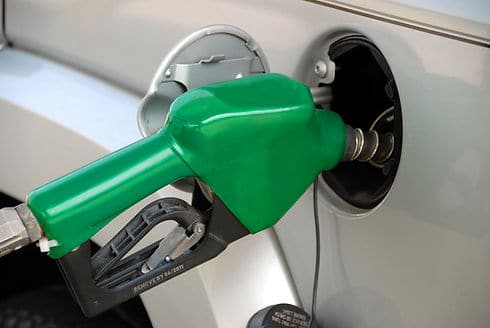Six Ways to Reduce Fleet Fuel Costs
Inflation, the COVID pandemic and the war in Ukraine have all contributed to an already exorbitant rise of fuel costs in North America. Fleet managers everywhere are looking for ways to reduce fleet fuel costs.
In 2019 alone, fuel was $2.60 per gallon. In March, 2022 fuel prices reached $4.17. With no relief in sight, fleet managers are continuously looking for ways to improve fuel economy.
Here are six ways that your organization can reduce fleet fuel costs.
#1: Dispatch the Right Vehicles to Reduce Fleet Fuel Costs
It might be time for a fleet upgrade. Newer trucks, such as EVs, use alternative fuel sources or are hybridized for better fuel efficiency.
While you may not necessarily have the resources to replace every vehicle, adding even a few of these trucks can help your fleet become more fuel efficient. More miles per gallon means less fuel consumption.
#2: Preventative Maintenance
Proper maintenance of vehicles ensures they are operating at full capacity. In many ways, good vehicle health can reduce the overall costs associated with their operation. Regular engine checks can ensure that nothing goes wrong on the road.
Tires
Tires are a big pain point for many organizations. Keeping tires in good condition and properly inflated can reduce gas mileage by 0.2% for every 1 psi lower than recommended.
Payload
Reducing extra weight in your trucks can have a positive effect on fleet fuel costs. In fact, reducing a truck’s weight by just 100lbs could save nearly $500 in fuel costs.
A/C
While everyone loves to cool off during the hot summer weather, reducing air conditioning usage in your vehicles can also reduce fuel consumption by 3%. The same goes for turning down the heat in colder weather.
Many telematics solutions can monitor maintenance needs across the whole fleet and send automatic notifications if a vehicle requires a tune-up or inspection.
#3: Improve Driver Habits
Bad habits such as speeding, aggressive driving and harsh braking can incur fuel costs for fleets to the tune of an additional 27%.
Provide drivers with insights into their driving behaviour and offer constructive coaching to get them back on track and improve overall fuel efficiency.
Telematics can provide valuable data sets to support driver coaching and scorecards, both of which are incentives to feel more engaged while positively impacting your fuel costs.
#4: Improve Vehicle Routing
Optimized routing not only shortens delivery times, but can also improve fuel economy. Telematics and fleet management software enable fleet managers to create and alter routes in real-time by considering factors such as weather, construction, accidents or other road obstructions.
As a result, trucks get where they need to be on time and faster, saving fuel costs in the process.
#5: Reduce Idling
According to a recent report, idling can use a quarter to a half gallon of fuel per hour.
Depending on the size of your vehicles and of your fleet, those numbers can spell big trouble for fuel economy. Fleet managers can reduce fuel wastage by:
- Turning off the engine when making a delivery or waiting for a pick-up.
- Reduce idling while in heavy traffic by turning off the engine
- Don’t idle to warm up the engine.
The right telematics solution can monitor specific data sets around idle time, enabling fleet managers to address fuel waste.
#6: Invest in Telematics to Reduce Fleet Fuel Costs
There is no other singular solution that offers the most fuel savings. Telematics enables fleet managers to make significant changes to their operations in real-time, reducing costs and improving outcomes.
Telematics works by providing instant communication between vehicles and the fleet manager, offering valuable data and insights into various facets of the operation, including:
- Vehicle location information and driver recognition
- Maintenance problems and engine health
- Poor driving habits such as harsh braking and excessive speeding
- Vehicle (and fuel) usage
The more data available, the more fleet managers can learn about their operations. By accessing insights around driving habits, route optimization, traffic delays and weather conditions, organizations can apply their learnings to future operations, all with the focus on choosing the best fuel solution.
The right type of fleet management software integrates telematics and other smart systems to reduce human error and improve operations. By leveraging this software solution to monitor fuel consumption, organizations are better empowered to lower fuel costs and grow their revenue.


